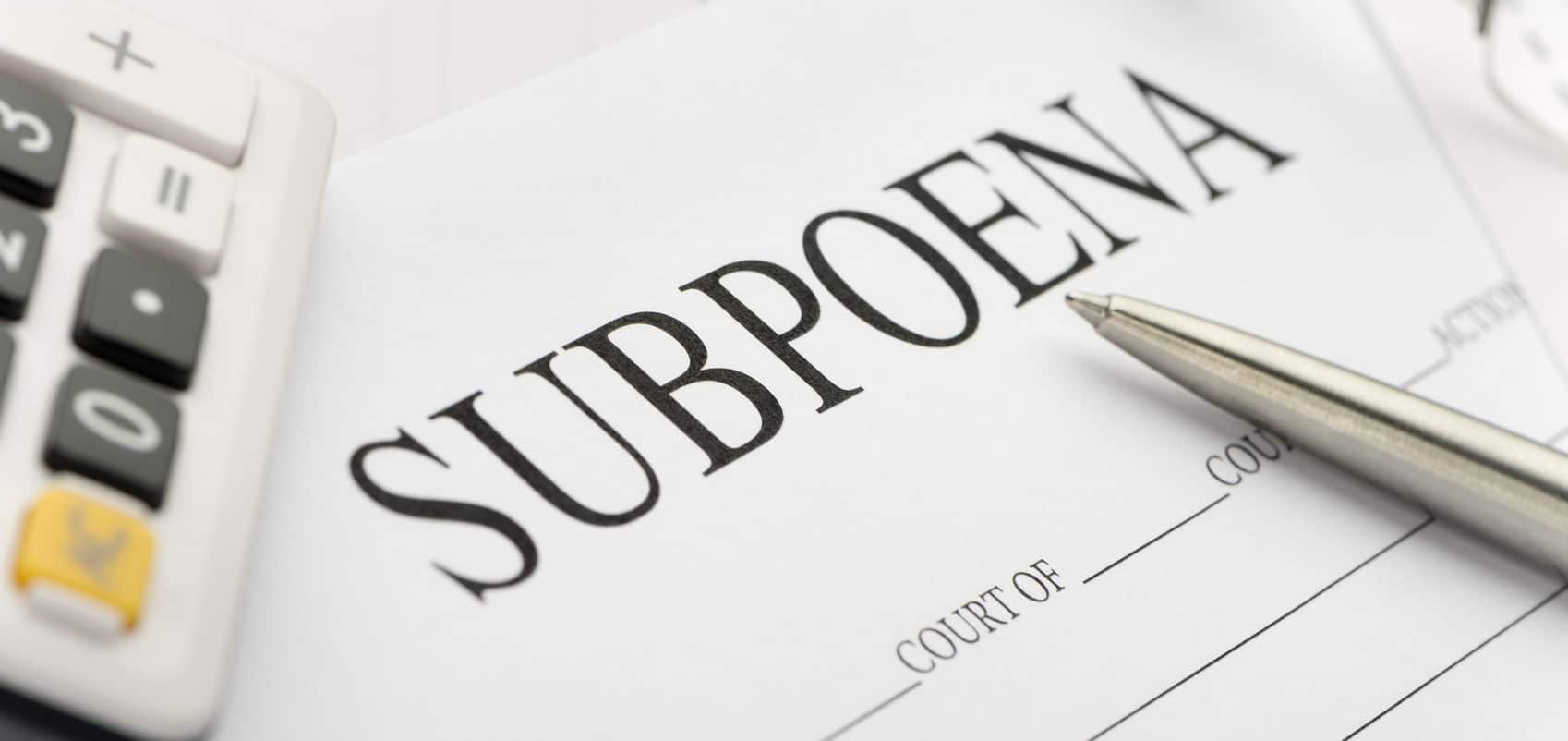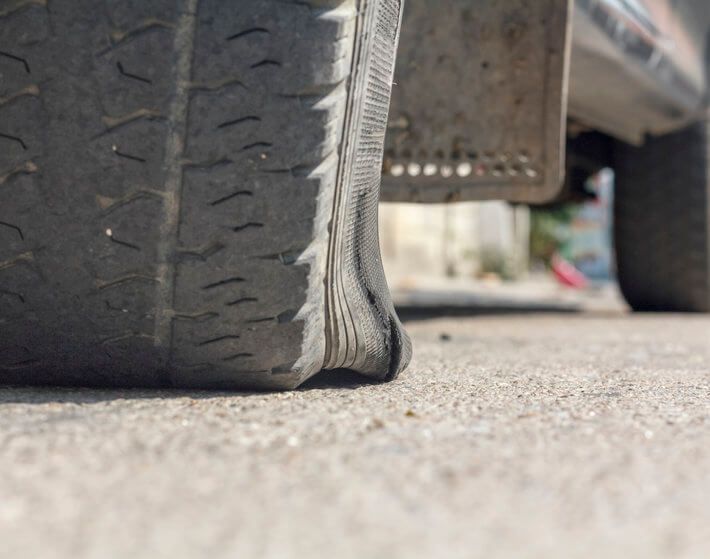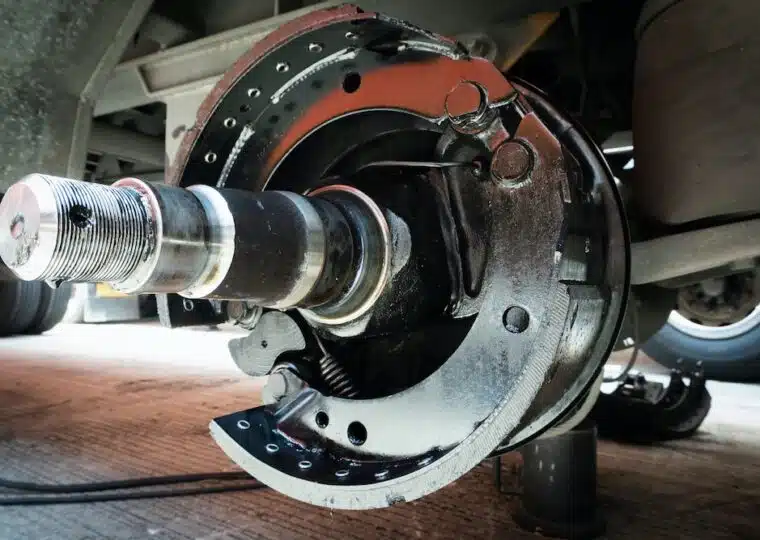
Subpoena
A subpoena is a legal document issued by a court or legal authority that compels an individual to either testify as a witness or produce evidence relevant to a case. Subpoenas are essential tools in the discovery process, enabling parties to gather information and witness accounts necessary to support their claims or defenses. Failure to comply with a subpoena can lead to legal penalties, including fines or contempt charges. At 770GoodLaw, we guide clients through the subpoena process, helping them understand their obligations and protecting their rights throughout legal proceedings.
Purpose of a Subpoena
The main purpose of a subpoena is to ensure that relevant information and testimony are accessible during a legal case. Subpoenas support a fair trial by allowing both parties to obtain necessary evidence and ensure witness availability. Key purposes of subpoenas include:
-
Securing Evidence: Subpoenas allow parties to obtain essential documents, records, or physical evidence from third parties.
-
Ensuring Witness Testimony: Subpoenas compel witnesses to appear in court or a deposition, ensuring their testimony is available to aid in the case.
-
Promoting Transparency: By requiring disclosure of relevant information, subpoenas support transparency and help uncover key facts.
-
Protecting Legal Rights: Subpoenas allow parties to gather all necessary information to build their case, safeguarding the right to a fair trial.
Types of Subpoenas
Subpoenas come in various forms, each serving a different purpose based on the type of information or testimony needed. Common types of subpoenas include:
- Subpoena Ad Testificandum: This type of subpoena requires a person to testify in court or during a deposition, providing firsthand information relevant to the case.
- Subpoena Duces Tecum: This subpoena compels an individual or organization to produce documents, records, or other physical evidence, such as medical files, contracts, or emails.
- Subpoena for Deposition: Often used during the discovery phase, this type of subpoena requires an individual to provide sworn testimony outside of court.
- Subpoena for Records: In some cases, a subpoena may specifically request the production of business, financial, or medical records to support a party’s claims.
- Serving a Subpoena
The process of serving a subpoena involves delivering the document to the individual or organization being compelled to testify or produce evidence. Proper service ensures that the subpoena is legally binding and enforceable. Key steps in serving a subpoena include:
-
Personal Delivery: Subpoenas are typically served in person by a process server, ensuring direct delivery to the individual.
-
Certified Mail: In some cases, subpoenas may be served by certified mail with a return receipt, providing proof of receipt by the recipient.
-
Acceptance of Service: The recipient may voluntarily accept the subpoena by signing an acknowledgment of receipt, especially in cases involving attorneys.
-
Proof of Service: The individual serving the subpoena must provide proof of service to the court, confirming that the document was properly delivered.
Responding to a Subpoena
Once a subpoena is received, the recipient must take prompt action to comply, seek clarification, or file a legal objection if necessary. Steps for responding to a subpoena include:
- Reviewing the Subpoena: The recipient should carefully read the subpoena to understand the information or testimony required and the response deadline.
- Seeking Legal Counsel: Consulting an attorney helps recipients understand their rights and obligations, especially if the subpoena requests sensitive or confidential information.
- Preparing the Required Information: If complying, the recipient should gather the requested documents or prepare for testimony according to the subpoena’s instructions.
- Filing an Objection: In cases where compliance is impractical or burdensome, recipients may file a motion to quash or modify the subpoena, seeking court intervention.
Legal Considerations for Subpoenas
Subpoenas are powerful legal tools, but they must comply with specific regulations to be valid. Important legal considerations include:
-
Relevance and Scope: Subpoenas must request information relevant to the case, and courts may limit overly broad or burdensome requests.
-
Privacy Protections: Subpoenas requesting confidential or sensitive information, such as medical or financial records, may require additional protections or court approval.
-
Enforcement and Compliance: Noncompliance with a subpoena can result in contempt charges, fines, or other penalties imposed by the court.
-
Objections and Modifications: Recipients have the right to object to subpoenas if they believe the requests are unreasonable, allowing courts to review and modify terms if necessary.
How 770GoodLaw Assists Clients with Subpoena Compliance
At 770GoodLaw, we provide clients with comprehensive support in responding to subpoenas, protecting their rights, and ensuring they meet legal requirements. Our attorneys guide clients through each step, from reviewing subpoena terms to addressing potential legal objections. Our approach includes:
- Explaining Subpoena Requirements: We help clients understand their obligations, ensuring they respond appropriately and avoid penalties.
- Reviewing Documents and Testimony: Our team assists clients in preparing documents and testimony, ensuring they comply fully and accurately.
- Filing Objections When Necessary: We represent clients in filing objections to overly broad or burdensome subpoenas, seeking court relief if needed.
- Providing Legal Representation in Court: If court appearances or depositions are required, we provide representation to protect clients’ interests and rights.
Importance of Legal Representation for Subpoenas
Subpoenas can involve complex legal requirements, particularly when dealing with sensitive information or extensive documentation. Legal representation ensures that clients meet their obligations while protecting their rights. At 770GoodLaw, we offer experienced support for clients facing subpoenas, helping them navigate the process with confidence and compliance.
Why Choose 770GoodLaw for Subpoena Assistance
Our commitment to Relentless Reliability and Sincetegrity drives us to provide comprehensive guidance for clients responding to subpoenas. At 770GoodLaw, we work tirelessly to protect clients’ rights, ensuring they understand and fulfill their legal obligations.






